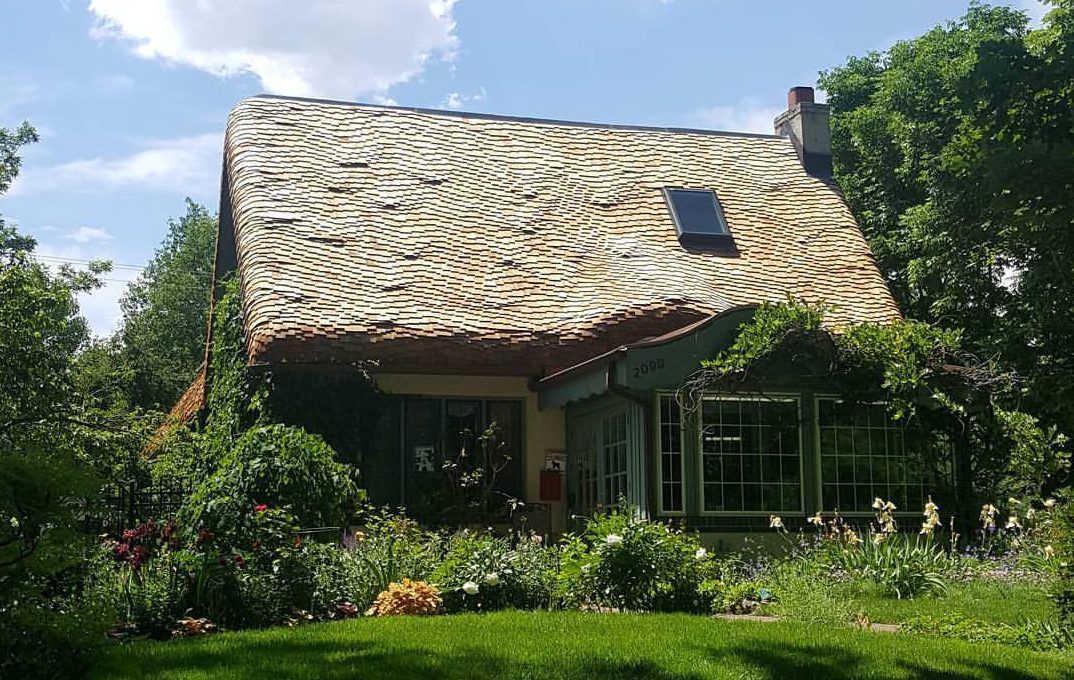
I got the call that they were relocating to Denver from Indiana in a month, coming in for a long weekend to buy a house. I knew it was much more than finding a house, we needed to find them their home. “Power shopping” in 90 degree heat, we toured ten properties. With their wonderful parents and a great son in tow, these buyers were champs! At day’s end we went for tacos at North County and discussed the top contenders over delicious margaritas. The next day, loaded up with snacks and water, we set out to see another ten. End of the day, our last showing was in Castle Rock. And it was PERFECT! Our offer was accepted and yesterday our new Colorado residents (and my new friends) moved into their gorgeous home. Congratulations, Nick, Katie, and Jake!

The numbers are in and it’s been a wild ride! The year started with an insane first quarter, with buyers offering more than $100k over asking price, waiving inspections, covering appraisal gaps. And then, interest rates went up, showings dropped off, prices came down, and the market got… quiet.
It is common for the Denver real estate market to expect a seasonal slow down after July 4th, but this year’s cooling happened early. With the rise in inflation, the Feds pushed hard on rates and buyers pulled back. Many were exhausted by the Q1 rush, some felt the effects of the stock market, while others feared the increased interest rates. When rates rise 1 point, that’s a 10% reduction in buying power. A reduction in the loan amount often moves a buyer into a lower, more competitive, price point. Home prices have adjusted to these changes, leveling off a bit and shifting toward more balance, between home buyers and sellers.
“Every indicator points to the market shifting closer to a buyer’s market. The month-end active listing increased 21.53 percent last month, pending and closed deals decreased and days in the MLS increased by 30 percent. We are still a long way from what many experts would consider a buyer’s market.” -Andrew Abrams, DMAR Trends Committee Chair
With the number of residential homes on the rise, buyers have more options, but sellers see themselves with more competition than they did earlier in the year. The average close price saw a minor dip from the prior month but year over year, there was a 11.04% increase. As for days on market, there was both an increase from last month and from the same time in 2021.
With all the changes in the economy, we are not surprised to see movement in the real estate market too. However, don’t let the numbers keep you from your end goal. Whether that’s buying, selling, or investing one thing I know is that its your life that moves you, not the market. NOW is always the right time if it fits your personal situation.
Looking for more explanation on all of this? Comment, call/text/email and let’s have a conversation. Or if you’re shy like me, check out the Market Report for Q2 . If you want to see where we are today, click on the Denver Metro Association of Realtors Market Trends Report for August.
Capitol Hill Condo
 “Tracy is the best!! She sold our 1 bedroom condo in a Historic Register building in Capitol Hill in Denver. Unlike many realtors who are just looking to make a sale and move on to the next, Tracy really cares about her clients and their financial situation. She actually convinced us not to sell the first time we contacted her because the market was in the pits and our condo was worth less than 1/2 what we paid for it. By following her advice and waiting a few years, we ended up making money on the condo when it sold for OVER the asking price. She was incredibly patient with all of our concerns and questions, and knows more about the market than anyone. Also worth mentioning that we were out of state for the whole process, so she handled EVERYTHING; renovations, cleaning, staging, pricing, showing, you name it! She made this very stressful situation much less so, and we can’t imagine using anyone else.” – Keith Orell
“Tracy is the best!! She sold our 1 bedroom condo in a Historic Register building in Capitol Hill in Denver. Unlike many realtors who are just looking to make a sale and move on to the next, Tracy really cares about her clients and their financial situation. She actually convinced us not to sell the first time we contacted her because the market was in the pits and our condo was worth less than 1/2 what we paid for it. By following her advice and waiting a few years, we ended up making money on the condo when it sold for OVER the asking price. She was incredibly patient with all of our concerns and questions, and knows more about the market than anyone. Also worth mentioning that we were out of state for the whole process, so she handled EVERYTHING; renovations, cleaning, staging, pricing, showing, you name it! She made this very stressful situation much less so, and we can’t imagine using anyone else.” – Keith Orell
Hot Summer Real Estate Market Cools
Wonder why your home didn’t sell in a weekend? Here’s a bit of info on the summer real estate market. If you take a look at the graph you’ll see that showing traffic in 2Q 2016 is down quite a bit from the First Quarter of the year. This is no surprise, it’s been the seasonal trend for the last four years. Coming off of a super-heated real estate market this spring, the usual summer “slowdown” feels more dramatic than a political convention. If you’re “lingering” on the market for a whopping two weeks remember that listings don’t always sell in a weekend and not all of them get twenty offers, especially those priced over $350,000. Summer in Denver is not only the real estate selling season, it’s vacation time too! With so much to do in our lovely state, we get up, get out and go more often and our stressed out home buyers need a break. Showings tend to pick up again after the Fourth of July for those looking to make a move and settle in before school starts in late August. That’s the conventional wisdom coming from an unconventional gal.
What I have seen year-after-year is a strong autumn season for real estate sales when the summer buyers have either completed or delayed their purchase and those who want to serve Thanksgiving in a new home come out to play. Same goes for the end of the year when myth tells us it’s a bad time to list a house for sale. My experience has been that winter buyers are fewer, yes, but they are more serious and with our continued lack of inventory many will see the cooler months as a less competitive time to purchase a home. Look for more soon in my next Real Estate Market Update.
 As a Realtor, out on the town I’m always asked, “How’s the market?” It’s the follow-up question where it really gets interesting.
As a Realtor, out on the town I’m always asked, “How’s the market?” It’s the follow-up question where it really gets interesting.
The last seven years have seen a surge in the metro Denver real estate market as record numbers of buyers look for homes, which in turn has caused prices to jump. The strength in the market has been so pronounced that people are beginning to ask “Are we in another bubble?” It’s a reasonable question given the horrendous experience of the housing crisis, and while no one can ever predict the future with certainty, I see no evidence that we’re heading for a dramatic downturn in the real estate market any time soon. Here’s why:
1. Even with the continued increase in metro Denver home prices (up another 8 percent in the past 12 months) the average inflation adjusted PITI (Principle, Interest, Taxes, and Insurance) payment made in metro Denver is actually BELOW our 35-year average. This means that while prices have steadily risen, buyers are still able to afford their monthly payments, providing plenty of room for continued home price increases.
2. The number of transactions relative to the population of metro Denver is just about at the 25-year average. At the peak of the bubble in 2006 the number of home sales was about 20 percent above the historical average. When we see the number of closed transactions well above our historical average that’s an indication of an overheated market, as it was in 2006. The number of closed home sales is actually DOWN 12 percent in the past year due to the low inventory. No sign of a bubble here.
3. In 2006, many of the deals were closed with low or no documentation mortgages (“liar loans” or “no doc loans”). Today, mortgage underwriting standards are among the toughest they’ve been in decades. This prevents unqualified buyers from purchasing property, which mitigates the chance of the market overheating (fewer buyers means fewer purchases means less chance of the market frothing into bubble territory like it did in the past).
4. Because of relatively high home affordability it’s a lot cheaper to buy than rent in our market. This would not be true in a bubble. For housing price affordability to return to the average level that we saw in the years between 2000 and 2004 either home prices would have to increase an additional 35 percent or interest rates rise to 6.6 percent. Neither is going to happen any time soon.
5. The imbalance between buyers and sellers we’ve seen recently in our housing market (too many buyers/not enough homes for sale) is due to a lack of inventory, not illogical/unrealistic/unsustainable demand from buyers. “Much of the price increases we are seeing are the result of rising demand among investors and homebuyers for a still-limited supply of homes for sale,” said Anand Nallathambi, president and CEO of CoreLogic. This imbalance is a logical correction from years past when we had too FEW buyers in the market. This is how markets are supposed to work, always regressing to the mean over time.
6. Rising mortgage rates will help to temper the possibility of a bubble as well (they are still near 50-year lows but are expected to rise someday). “History shows that a rapid rise in interest rates tends to have little correlation with home prices. Rather, rising rates are more likely to contribute to a decrease in home purchase volume,” wrote Mark Palim in a Fannie Mae commentary. So the positive side of a rise in mortgage rates is that it will reduce the number of buyers and therefore lower the chance the market will rise out of control and end up collapsing in a bubble.
Click on the monthly market snapshot, the inventory of metro Denver homes for sale continues to fall; it’s down another 5 percent from a year ago. Since the inventory is still extremely low (about 5,520 homes on the market where about 18,000 is a balanced market) I am all but certain the demand will still exceed the supply for the next several years and prices will continue to rise for the foreseeable future. No bubble on the horizon yet… Stay tuned!
![June 16 - Market Snapshot [5608]](https://tracyshaffer.com/wp-content/uploads/2016/06/June-16-Market-Snapshot-5608.jpg)
Buyers
If you agree that we’re not headed for a bubble any time soon what does this mean for you as a buyer? I think it means you should consider buying a home IF it makes sense for you to do so. Are you running out of room at home? Expecting a baby? Have an awful commute? Want to live in a nicer neighborhood? Looking for a better school district for the kids? There are a lot of great reasons to move. But don’t buy a home to speculate on the market; buy because it’s time for a new home. Call me anytime to discuss what your options are and how I can help you find a wonderful place to live.
Sellers
We have been discussing the incredible strength in our housing market. If you’re looking to sell your home this should be very welcoming news! The inventory of homes on the market is at an all-time low and prices are up. Call me and I’ll be happy to run a complimentary Comparative Market Analysis on your home to let you know what it might be worth. It’s great information and costs you nothing.
Investors
The most recent “Metro Denver Area Residential Rent and Vacancy Survey” shows the great news continues for landlords. According to the report:
“The overall vacancy rate for the metro area for the fourth quarter of 2015 was 3.1 compared to 3.9 percent for the previous quarter, and 1.5 percent for the fourth quarter of 2014. It was 2.0 percent in the fourth quarter of 2013, 1.7 percent for the fourth quarter of 2012, 2.1 percent for the fourth quarter of 2011, 2.0 for the fourth quarter of 2010, 5.5 for the fourth quarter of 2009, and 4.9 percent for the fourth quarter of 2008.”
In the U.S., more millionaires owe their wealth to real estate investments than any other single source of income. Today’s market could not be better for long-term buy –and-hold investors. Call me to find out more.
Vacancy Rates
Adams 3.9%
Arapahoe 4.0%
Boulder/Broomfield 2.7%
Denver 3.1%
Douglas 1.7%
Jefferson 2.6%





![2Q16 Showing Traffic - TShaffer [4151395]-page-001 (1)](https://tracyshaffer.com/wp-content/uploads/2016/07/2Q16-Showing-Traffic-TShaffer-4151395-page-001-1.jpg)

